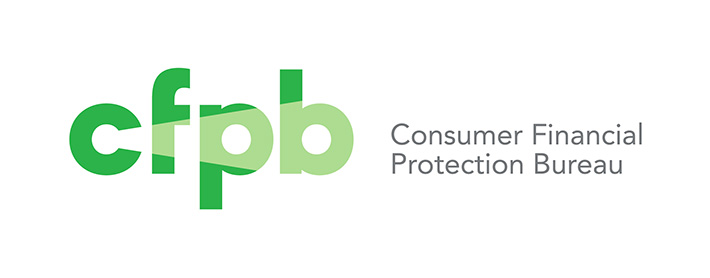Archive for 2023
Surprising Stats of 2023
December 27, 2023Remember when interest rates soared, banks collapsed, and experts began to prepare for the worst? Well, appearances can be deceiving.
Business loan origination volume at Square, Enova, Shopify, and Funding Circle are all on track to surpass 2022’s numbers. When it came to bad debt, PayPal was the only large tech lender to announce that it had become a problem this year. PayPal’s origination numbers are consequently also down year-over-year.
The S&P 500 was at 3,839.50 one year ago and closed at 4,774.75 yesterday, a gain of more than 24%.
Unemployment was 3.5% last December and had only modestly increased to 3.7% this November.
Inflation was 7.1% last November and only 3.1% this November.
Bitcoin is up by 150% year-over-year!
Anecdotal reports at smaller non-public small business funders, however, have hinted at bad debt increases all year and underwriting has generally become more conservative. Despite this, brokers are still brokering deals and funders are still funding. The predicted mass AI-induced layoffs have also not yet materialized. In the grand scheme of things, the argument could be made that 2023 was actually a pretty good year.
But 2024 could be dicey.
- The FCC closed the lead generator loophole.
- The first wave of small business finance companies will have to begin complying with new CFPB regulations.
- It will be a presidential election year like none ever experienced before.
- Americans are overleveraged. Forty percent of student loan borrowers failed to make a payment after the covid-era pause ended.
- General economic, societal, and political unease.
So what will happen? I guess we’ll find out. It could be terrible or awesome or anything in between.
Biden Vetoes Congressional Resolution to Scrap CFPB’s Small Business Lending Rules
December 19, 2023 Bipartisan or not, President Biden formally vetoed S.J.Res. 32 which would have scrapped the CFPB’s 888 pages of soon-to-be implemented small business lending rules and forced the agency to create new ones.
Bipartisan or not, President Biden formally vetoed S.J.Res. 32 which would have scrapped the CFPB’s 888 pages of soon-to-be implemented small business lending rules and forced the agency to create new ones.
The CFPB is obligated by the Wall Street Reform and Consumer Protection Act to collect data from small business finance companies (MCA included) so that it will be able to assess the market and measure potential disparities. It is a limited scope law that nevertheless resulted in 888 pages of rules explaining how to collect that data and send it to the federal government. They are slated to go into effect very soon.
Despite data collection being the intended purpose, Biden suggested in his official veto statement that the rules are actually intended to “conduct oversight of abusive and predatory lenders.”
“If enacted, this resolution would harm all those that stand to benefit from expanded transparency and accountability,” Biden said. “By hampering efforts to promote transparency and accountability in small business lending, Republicans are siding with big banks and corporations over the needs of small business owners.”
Unless litigation changes the timelines, many funders and lenders must start complying by October 1, 2024. This is a federal law, not a state requirement.
Intuit’s SMB Loans Relatively Flat Year-over-Year
December 18, 2023 Intuit originated $279M worth of term loans to small business for the fiscal quarter ending October 31. This is down from the $314M originated over the same time period last year.
Intuit originated $279M worth of term loans to small business for the fiscal quarter ending October 31. This is down from the $314M originated over the same time period last year.
“As of October 31, 2023 and July 31, 2023, the allowances for loan losses on term loans to small businesses were not material,” the company wrote in its earnings report.
Further, Intuit said that “In August 2023, we entered into a forward flow arrangement with an institutional investor. Pursuant to this arrangement, we have a commitment to sell to the institutional investor a minimum of $250 million in participation interests in unsecured term loans purchased or made to small businesses over the next 18 months, subject to certain eligibility criteria.”
Intuit did not raise its term loan program on its earnings call nor did analysts ask about it.
Here’s how Intuit’s flat SMB loan originations stacks up against some of its direct competitors:
Square Loans – Steady
PayPal – Significant pullback
Shopify Capital – Significant increase
Brokers: What’s Your Address and Phone Number?
December 14, 2023 Brokers, this is no joke. In eighteen days, the State of Florida will by law require that brokers disclose their actual address and phone number in advertisements that promote their services as a broker. This is because Florida’s commercial financing disclosure law added its own twist by incorporating one of DailyFunder’s original rules to its statute.
Brokers, this is no joke. In eighteen days, the State of Florida will by law require that brokers disclose their actual address and phone number in advertisements that promote their services as a broker. This is because Florida’s commercial financing disclosure law added its own twist by incorporating one of DailyFunder’s original rules to its statute.
Furthermore a broker may NOT:
(1) Assess, collect, or solicit an advance fee from a business to provide services as a broker. However, this subsection does not preclude a broker from soliciting a business to pay for, or preclude a business from paying for, actual services necessary to apply for a commercial financing transaction, including, but not limited to, a credit check or an appraisal of security, if such payment is made by check or money order payable to a party independent of the broker.
(2) Make or use any false or misleading representation or omit any material fact in the offer or sale of the services of a broker or engage, directly or indirectly, in any act that operates or would operate as fraud or deception upon any person in connection with the offer or sale of the services of a broker, notwithstanding the absence of reliance by the business.
(3) Make or use any false or deceptive representation in its business dealings.
What’s the risk of non-compliance?
The Florida Attorney General has the right to commence administrative or judicial proceedings to enforce compliance with this part.
1. A violation of this part is punishable by a fine of $500 per incident, not to exceed $20,000 for all aggregated violations, arising from the use of the transaction documentation or materials found to be in violation of this part.
2. A violation of this part after receipt of a written notice of a prior violation from the Attorney General is punishable by a fine of $1,000 per incident, not to exceed $50,000 for all aggregated violations, arising from the use of the transaction documentation or materials found to be in violation of this part.
These rules were signed into law in June of this year and they apply to all deals funded starting January 1, 2024.
deBanked’s Top Five Stories of 2023
December 13, 2023 deBanked’s most read stories of 2023 are in. Here’s what the industry read about most this year!
deBanked’s most read stories of 2023 are in. Here’s what the industry read about most this year!
EIDL & ERC Updates
Readers tuned in to learn about EIDL loans going bad and the roller coaster surrounding the ERC program.
See:
As IRS Announces Pause of ERC Payouts, Businesses May Resume Pursuit of Upfront Alternatives
Whoa, That’s a Lot of Bad EIDL Loans
Reliant Funding
There was a lot of talk about Reliant Funding this year, which first made waves in February and then later in September.
See:
Reliant Funding Shifts Gears
The LCF Group Acquires Key Strategic Assets from Reliant Funding and Sets Course for a Record-Breaking Year
GFE
The company is called Global Funding Experts. After they raised a debt facility of $100 million, everyone wanted to know more!
See: Experts: How GFE Went Big
Bluevine Cutting off ISOs
The news just broke, but seeing a big name change their business strategy like this has got many people talking.
See: Bluevine Partner Email Circulates
Florida Commercial Financing Disclosure Rule
Guess what’s about to go into effect? A unique disclosure rule like nowhere else. Brokers, I hope you’ve read this one!
See: Pending Florida Law Draws From DailyFunder’s Rulebook
Top stories of 2022
Top stories of 2021
Top stories of 2020
Top stories of 2019
Top stories of 2018
Top stories of 2016
Expansion Capital Group Announces $1 Billion Funding Milestone — Supporting the Expansion of U.S. Small Businesses
December 13, 2023
L-R: Herk Christie, Chief Operating Officer; Brittney Newell, Chief Financial Officer; Vincent Ney, Chief Executive Officer;
Tim Mages, Chief Strategy Officer; Mike Beattie, Chief Technology Officer
Photo Credit: Reistroffer Design
SIOUX FALLS, SOUTH DAKOTA—Expansion Capital Group, LLC (“ECG”) is pleased to announce its billionth dollar in funding, reinforcing its mission to support the “Expansion” of America’s Small Businesses with simple and efficient capital. Since inception in 2013, ECG has provided services to over 20,000 small businesses across multiple industries nationwide. ECG’s core solution, a six to 11 month working capital product, meets the needs of small business owners that are not in a position to wait for a traditional bank loan.
Tim Mages, Chief Strategy Officer of ECG said, “The ECG team is proud of its efforts to fulfill the capital needs of small business owners. Capital challenges have been magnified since COVID and the recent muted lending environment by regional and community banks. During the last three years, inflationary pressures have negatively impacted many hardworking small business owners. ECG has continued to be a reliable partner and a key resource as business owners navigate these headwinds.”
He continued, “In the last two years, we’ve seen accelerated growth of our platform. This growth is being driven by two key factors. First, our industry-leading Partner Portal is designed to create a transparent and seamless process for our referral partners. Second, investments in new technology and data sources have positioned ECG to provide underwritten approvals in less than an hour. These innovations would not have been possible without the trust of our valued customers and dedication of our 85+ team members.”
ECG’s Chief Operating Officer, Herk Christie, said, “Paramount to our success is the support from our referral partners. Since inception, we’ve also seen over one million applications from small business owners. Our financing alternatives provide business owners with more options and availability, so they can successfully execute their business objectives.”
As an on-balance sheet working capital provider, ECG is committed to providing customized solutions for small businesses. ECG works directly with small business owners and with hundreds of referral partners who are trying to meet their clients needs. ECG utilizes proprietary data, analytics, and systems to provide access and capital in a timely manner. Its robust underwriting models and flexible Partner Portal platform allows business owners to compare options and select a product that fits their needs.
Brittney Newell, ECG’s Chief Financial Officer added, “We hope to continue this growth in the coming years and appreciate the support of our long-time capital provider Bastion Management. As many market participants have tightened lending standards throughout 2023, ECG is committed to continuing to meet the increased demand for our services and offerings.”
PR Contact: tamara@tamaraedwards.co
###
Expansion Capital Group is headquartered in Sioux Falls, SD and operates as a technology-driven specialty lender harnessing data and analytics to offer tailor-made solutions for small business enterprises. The company primarily serves small businesses across the United States with annual revenues of less than $10 million. For more information, please visit www.ecg.com and follow us on LinkedIn and Twitter.
Recent ECG News
Sioux Falls Business Journal: Fast but careful money: Sioux Falls firm offers new kind of capital
Inc. 5000: Financial services firm partnering with small business owners to provide working capital solutions with speed, simplicity and service.
Legal Risks: Penalties for Non-Compliance in Revenue-Based Financing
December 11, 2023Jeffrey S. Paige is the General Counsel of CFG Merchant Solutions. Visit: https://cfgmerchantsolutions.com
Staying compliant with disclosure legislation and regulations is paramount for revenue-based financing funders and brokers alike. In states such as California, Virginia, Utah, New York, Georgia, Connecticut, and Florida, there are specific requirements to which commercial financing funders must adhere. Funders and brokers who fail to comply with these requirements could face significant legal and/or financial penalties. Funders and brokers are encouraged to consult their legal counsel to ensure full compliance with all laws and regulations of every state in which they transact business.
California Code of Regulations Title 10, Chapter 3 – California Financing Disclosure Law (Effective December 9, 2022):
Starting on December 9, 2022, commercial financing funders in California are required to provide clients with certain disclosures, including the controversial APR calculation. This became mandatory following the issuance of final regulations by the California Department of Financial Protection and Innovation (DFPI) on June 15th to implement the California Code of Regulations Title 10, Chapter 3. Violations of these disclosure requirements in California can lead to significant penalties, reaching up to $10,000 for willful violations, along with the possibility of imprisonment for licensees who commit violations. To maintain compliance and avoid penalties, consult with your counsel to ensure your disclosures are timely and set forth all required information, including but not limited to:
- Total amount of funds provided
- Total dollar cost of the financing
- Term or estimated term
- Payment details
- Prepayment policies
- Total cost of financing expressed as an annualized rate
Virginia HB1027 – Virginia Financing Disclosure Law (Effective July 1, 2022):
Virginia enacted HB1027, introducing disclosure and registration requirements for sales-based financing funders. Funders conducting business in Virginia are obligated to conform to these regulations, which include but are not limited to:
- Registration: Funders and brokers in revenue-based financing must register with the State Corporation Commission and subsequently renew annually.
- Disclosures: Disclosures for specific financing offers are mandatory, covering total financing amount, finance charges, total repayment amount, estimated payments, payment amounts, and applicable fees.
- Virginia’s Distinction: Unlike California and New York, Virginia does not mandate the disclosure of an annual percentage rate (APR), focusing on the disclosure of the total cost of capital.
Non-compliance with Virginia HB1027, the Virginia Financing Disclosure Law, exposes businesses to substantial penalties. The law empowers the Virginia Attorney General to seek injunctions for violations, in addition to restitution payments, damages, and attorney’s fees for violations.
Utah SB183 – Utah Financing Disclosure Law (Effective January 1, 2023):
Engaging in a commercial financing transaction as a provider in Utah or with a Utah resident has become unlawful unless one is registered with the Utah Department of Financial Institutions (DFI). This registration, akin to California’s process, must be renewed annually through the Nationwide Multistate Licensing System (NMLS). Utah’s unique framework explicitly states that non-compliance does not affect the enforceability of transactions, nor do violations give rise to a private cause of action against the funder. However, civil penalties are not to be underestimated. Violators can face penalties of $500 per violation, not exceeding $20,000 for all violations. For repeat offenders, especially those who receive written notice of prior violations, penalties can escalate to $1,000 per violation, capped at $50,000. To ensure compliance with Utah SB 183 and avoid legal trouble, ensure proper and timely registration and annual renewal. Also, consult with counsel to prepare the required disclosures, which feature (but are not limited to) the total amount of funds provided, the total cost of financing, and any other pertinent material terms and associated costs as required by the regulations.
New York Commercial Financing Disclosure Law (August 1, 2023):
The New York Commercial Financing Disclosure Law (CFDL) mandates standardized disclosures for unregulated financial institutions engaged in commercial financing transactions. Funders failing to comply may face civil penalties, with fines reaching up to $2,000 per violation or $10,000 for intentional violations. In addition, for knowing violations, the Superintendent of the Department of Financial Services can impose restitution payments and/or injunctive relief. Disclosures include, but are not limited to:
- The total amount of funds provided
- The total cost of financing (expressed as an annualized rate)
- A description of the financing product
- Other material terms and fees
- The name and contact information of the funder
- A statement that the borrower has the right to cancel the deal within three business days of receiving the disclosures
- Timing: The disclosure must be given to the borrower when a specific commercial financing offer is made.
- Any portion of the amount financed used to pay unpaid finance charges or fees (referred to in the legislation as “double dipping.”)
Funders should proactively integrate these disclosures to align with New York’s regulatory standards and foster a culture of accuracy and responsibility in commercial financing practices.
Georgia Commercial Financing Disclosure Law (Effective January 1, 2024):
Effective January 1, 2023, Georgia’s Commercial Financing Disclosure Law mandates clear and detailed disclosures for commercial financing funders. The law amends Georgia’s Fair Business Practices Act, applying specifically to providers of commercial loans and accounts receivable purchase transactions under $500,000. Transactions are defined as purchases of accounts receivable or payment intangibles, strategically avoiding loan classification, and notably, no licensing or registration requirements are imposed on funders. Funders failing to comply with these disclosure requirements face potential civil penalties, ranging from $500 to $20,000, with additional penalties for continued non-compliance after notice. Importantly, these penalties do not compromise the enforceability of the transactions, and it is noteworthy that the law does not grant a private right of action.
Disclosure Requirements:
- Providers must disclose key terms: total funding amount, net funds disbursed, total payable, financing cost, payment schedule, and prepayment penalties.
- Unlike California and New York, Georgia’s law does not mandate APR calculation.
- The definition of “Providers” is consistent with Utah’s Commercial Financing Registration and Disclosure Act.
- Covers those engaging in more than five commercial financing transactions in Georgia annually, including online platforms partnering with depository institutions.
Florida Commercial Financing Disclosure Law (Effective July 1, 2023):
Effective from July 1, 2023, commercial financing funders in Florida are mandated to comply with the requirements of the Florida Commercial Financing Disclosure Law.
Florida Law Disclosure Requirements:
Non-compliance with these regulations can result in fines ranging from $500 per incident to an aggregate of $20,000, with possible aggregate penalties up to $50,000 for continued violations after receipt of notice. As with other states, transparency in financial dealings is paramount, and funders should stay updated on regulatory changes to ensure continuous compliance.
Connecticut Financing Disclosure Law (Effective July 1, 2024):
Connecticut sets a clear deadline for funders and brokers to register with the state banking commissioner by October 1, 2024. Additionally, the Connecticut Financing Disclosure law requires funders to disclose:
These regulations apply to entities providing commercial financing, and failure to comply can result in severe civil penalties of up to $100,000. The commissioner additionally holds the authority to enjoin those violating the statute. Understanding and fully complying with these requirements is crucial for funders and brokers that transact business in this state.
The Imperative of Adhering to Evolving Commercial Financing Disclosure Laws
The regulatory frameworks in California, Virginia, Utah, Georgia, New York, Florida, and Connecticut, coupled with impending regulations in other states, underscore a growing regulatory focus on transparency, customer protection, disclosure and equitable financial practices. With revenue-based financing facing heightened scrutiny, the strict compliance with these laws cannot be emphasized enough. Ensuring adherence is not just a best practice but a crucial necessity to avoid potential legal penalties and foster a financial ecosystem built on trust, integrity, and responsible funding practices.
Missouri Resurrects its Commercial Financing Disclosure Bill
December 10, 2023For the third time, a commercial financing disclosure bill has been introduced in Missouri. Senate Bill 753, introduced this month, is nearly identical to SB 187 which failed to gain traction this year.
A staple of the bill is its broker licensing requirement, which would require an annual renewal. Brokers would not be able to broker any deals for Missouri merchants until they were registered.





























